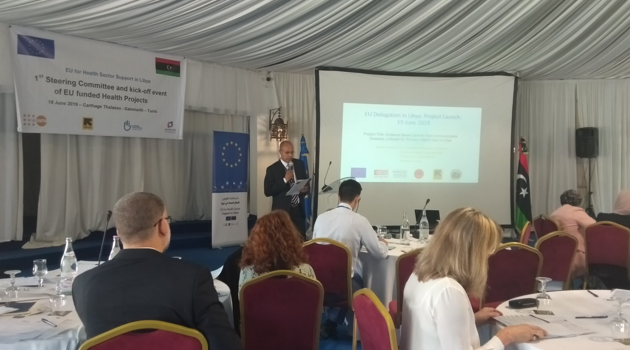With the ongoing conflict in Tripoli, the needs of the Libyan health sector are as urgent as ever. In that context, on Wednesday 19th June 2019 the European Union (EU) and the Libyan Ministry of Health officially launched five new EU-funded projects to support the Libyan health sector.
The projects cover a broad spectrum of priorities of the health system in Libya, with specific focus on primary health care services, blood transfusion safety, nurse and midwifery education, mental and psychosocial support as well as prevention and management of non-communicable diseases (NCDs). The cumulative budget donated by the European Union to these five projects is approximately 13 million EUR.
The event witnessed the participation of senior Libyan officials from the health sector and served as an opportunity to review the progress of the startup phase of the projects, discuss the impact of the recent crisis on implementation and agree on the next steps for the upcoming period.
The Head of Operations at the EU Delegation to Libya, Stefano Sotgia, opened the event thanking the Libyan officials for their commitment and commending the crucial role of the Ministry of Health, stressing that: '
'These projects are a result of a longstanding cooperation between the EU Delegation to Libya and the Ministry of Health, one that dates back to 2012. These projects reflect a common will to support the Libyan people during this difficult phase of the country's history, based on a joint understanding of the challenges and needs of the Libyan health sector, in a spirit of true partnership. All the more important, these projects will also respond to some of the urgent needs of the population emerging from the ongoing crisis''.
Dr. Nagi Abdallah, Adviser to the Minister of Health, in his opening remarks, welcomed the EU-Libya technical cooperation in the health sector, stressing that:
“These projects address important issues and priorities of the Libyan health system. We hope that they will constitute a good example that will help our Ministry to improve the provision and quality of health care in our country”.
(Source: EU)





